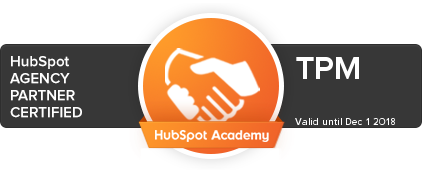Marketing is hard work. And the number of platforms and places to reach your audience don’t make it any easier. Channel partner programs have become a fixture in the B2B marketing world, but results are mixed.
If your business engages consumers through channel partners or resellers, channel marketing seems like an obvious solution. Marketing in partnership with the companies selling your product — and ensuring they have the resources and knowledge to do so effectively — is a no-brainer. You empower your partners to do more and ease the load on your own marketing team in a single step.
Is Channel Marketing Broken?
But if channel partner marketing is so amazing, why did a survey by Foundry yield these responses from channel marketing professionals?
- 70% say getting partners to engage with channel programs or use market development funds is a challenge
- 80% report difficulty planning and executing channel marketing plans within partner funding timelines
- 24% say partners are not committed to programs
- 22% report a lack of alignment with partner expectations when measuring success
Sometimes you need to ditch “the way we’ve always done it” in favour of something new. Channel partner programs are the default — but are they still effective? Should you still be investing time and money in channel partner programs — and if so, how do you make that investment worthwhile?
Why Channel Marketing Still Matters
Building a channel marketing plan isn’t easy. But how much of what you do is? Despite the challenges and concerns voiced by marketers in the Foundry study, channel partner programs can still deliver a range of benefits.
- Cost savings: Creating a single — ideally, customizable — marketing campaign and having your partners do all the work is more affordable and effective than doing all the heavy lifting on your own.
- Increased Reach: Each of your channel partners has already established an audience and built a relationship with them. Your channel marketing campaign reaches your audience plus all the audiences of your partners, giving you greater visibility (and the trust your partners have earned).
- More Revenue: As a channel vendor, your bottom line depends at least in part on the revenue your partners generate. A successful channel partner marketing campaign should drive a sales increase for them — more sales for them equals a bump in revenue for you.
- Stronger Partnerships: You are probably not the only vendor your channel resellers work with. Supporting them with resources and marketing campaigns they don’t have to build themselves will strengthen your relationships with them and, quite likely, make you a more appealing partner than your competitors.
How to Build a Channel Partner Program That Works
The benefits of channel partner programs don’t automatically eliminate the challenges associated with implementing them. If your channel marketing plan is struggling with low engagement or difficulty launching campaigns, you may never realize the benefits we’ve discussed.
Let’s dig into some of the factors behind the most commonly cited channel program roadblocks — and how to address them.
1. Have You Chosen the Wrong Partners?
Not every company that sells your product or service will be the right fit for a channel partner program. Remember the Pareto Principle: 80% of your revenue will come from 20% of your sales efforts — some people will even say the rule is closer to 90-10 in channel marketing. Don’t cast a wide net for channel partners — focus on the few that will really deliver a return on what you invest in them.
Identify the most profitable targets for your partner marketing efforts.
Look for channel partners that can add value to your channel program:
- Niche expertise related to your offering
- A large, loyal customer base
- Alignment in values and marketing strategy
- A wealth of marketing or sales resources
- Geographic location
- The IT factor — you just feel like they’re a good fit

2. Are You Communicating Value?
Channel partners have businesses of their own to run — and are constantly bombarded with offers to join partner programs or other vendor initiatives.
They’re not going to automatically buy into your channel program just because it’s there.
Develop a compelling value proposition that demonstrates to partners what they’ll gain from participating. Make it simple. Make it direct. It should be drop-dead easy for them to understand why they should work with you — you’re going to help them make money (lots of it). Spell out benefits, incentives, compensation, and rewards as clearly as possible.
What motivates your partners?
- Financial incentives
- Customer satisfaction
- Business development support
- Increased leads
- Certifications in your solutions
- The resources that make it easy to sell your product
3. Is Your Program Better Than Your Competitors?
Your channel partners are probably already working with other vendors. And those vendors (your competitors) might have channel partner programs in place.
Scope the competition. See how engaged partners are in other programs, learn what they expect, and identify what you can offer that other vendors don’t. Use this reconnaissance mission to learn what works and what doesn’t.
What can you offer to convince partners to engage with your channel partner program?
This is not the time for the power of positive thinking. Get in front of a mirror and be honest. What can you offer that sets your channel program apart from others?
The motivating factors from the last section will play a role here, but don’t limit yourself to competing on rewards. Superior content (with demonstrated results), better onboarding, a self-service portal — any of these could be what tips the scales in your favour.

4. Did You Forget to K.I.S.S.?
You won’t necessarily have the same relationship with each of your channel partners — especially if you have a lot of them. Defining a partner framework can help you organize those relationships into different categories based on partner size or engagement.
But getting overly ambitious at this stage can mean a lot of work for minimal results.
Creating different levels of partner — like Bronze, Silver, and Gold — can be useful for prioritizing relationships and can also incentivize partners to increase their involvement in your program to achieve the rewards offered in more elite tiers. But each level you add increases the complexity of managing your initiative. Only add tiers if there is a specific reason to differentiate between partner groups — don’t make levels for the sake of having levels.
5. How Good is Your Collateral?
Quality wins over quantity when considering how to build a channel partner program. You don’t need to have a million assets ready to go on day one.
Start with content that really speaks to the needs of end customers — and make it awesome. Slowly work on building out different assets. Try for one piece per funnel stage, for example:
- An introductory value proposition deck with guidance on sniffing out a good target (top of funnel)
- A features piece with lots of resources for handling objections and describing use cases (middle)
- A bottom-of-the-funnel asset with proof points and testimonials that drive sales home
6. Have You Made It Easy for Them?
Remember what I said about making it easy for partners before? It doesn’t stop once you’ve convinced them to consider your channel partner program. A smooth onboarding program is vital to your success.
Don’t leave channel partners in the dark about what to do once they engage. Training presentations, FAQs, and sales plays can reassure them you’re committed to their success. If you don’t have the resources to develop the assets required to jump-start your program, consider engaging an agency that specializes in partner marketing.
Need Help Launching a Channel Partner Program?
At TPM, we have years of experience building channel and partner marketing programs for organizations in the technology sector. We’ve helped companies like Adobe, Intelisys, and PayPal build better, more profitable relationships with their partners, and we can help your business too. If you’ve got questions about building a channel partner program — or if your existing initiative isn’t delivering the results you hoped — contact our team. We’re here to help!



